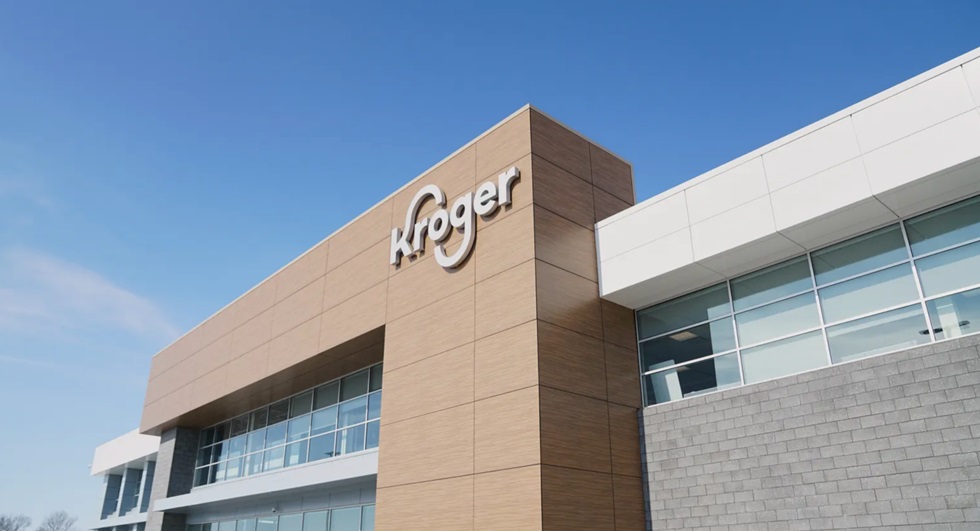
WASHINGTON—A planned mega-merger between the nation’s largest and second-largest grocery chains could raise prices to consumers and result in weaker bargaining power, if not outright layoffs, among the 700,000 unionized workers the combined firm would employ.
Which is why, to cheers from the United Food and Commercial Workers and the National Consumers League, the Biden administration’s Federal Trade Commission—the agency charged with protecting consumers against monopolies and corporate greed—went to U.S. District Court in Portland, Ore., for an injunction to stop it.
The $25 billion deal between Kroger and Albertson’s would create local monopolies around the country, drive up prices for consumers, and cost thousands of workers at the two grocery chains their jobs, the union, the feds and the consumer group said. Albertson’s also owns Safeway nationally, Jewel/Osco in metro Chicago, and the Fred Meyer chain in the Pacific Northwest, among others.
After reviewing the merger for more than a year—including prior UFCW objections to it—the FTC ruled it anti-competitive and on February 26 sued to stop it.
The merger would consolidate 5,000 stores and 4,000 pharmacies, the Consumers League said. Right now, those two chains compete not just for workers, but on price and quality, which benefits consumers, the agency explained.
Their merger “would create a near monopoly,” the Consumers League added. “Without FTC action, consumers would see inflated prices and workers would be stuck with anticompetitive compensation.”
In filing suit, the FTC made the same points about workers and consumers getting hurt.
“Today, UFCW and other unions leverage the fact that Kroger and Albertsons are separate and competing companies. Unions push for both supermarket chains to negotiate better employment terms for union grocery workers, especially when negotiating over collective bargaining agreements,” the agency’s Bureau of Competition said.
“A combined Kroger/Albertsons, however, would gain increased leverage over workers and their unions—to the detriment of workers.” And the monster chain “would have more leverage to impose subpar terms on union grocery workers that slow improvements to wages, worsen benefits, and potentially degrade working conditions.”
“This supermarket megamerger comes as American consumers have seen the cost of groceries rise steadily over the past few years,” said FTC Bureau of Competition Director Henry Liu. “Kroger’s acquisition of Albertsons would lead to additional grocery price hikes for everyday goods, further exacerbating the financial strain consumers across the country face today.”
The agency’s suit against this merger is part of a pattern under the Biden administration: Suing, and often stopping, anti-competitive monopoly plans the corporate class hatches. Benefits from such mergers line executives’ pockets while leaving workers without jobs and consumers without competition for their dollars. Past administrations have let such big mergers slide through.
“Decades of ignoring federal law have allowed industry consolidation to grow unchecked, leaving everyone worse off except for a handful of executives at the top,” said NCL Chief Executive Officer Sally Greenberg, speaking of this merger. She easily could have added other industries, from airlines to food processing to warehousing to retail to that indictment.
“The FTC is rightfully asserting its authority and putting the interest of consumers and workers first. Monopolists should know that they can no longer take advantage of the American public without facing legal challenges,” Greenberg added.
“The FTC’s decision reflects clear concerns over the impact such a megamerger could have on workers, food prices, and millions of customers,” UFCW President Marc Perrone said. “UFCW stands, and will continue to stand, in opposition to any merger that would negatively impact our hundreds of thousands of hard-working members who work at Kroger and Albertsons” along with “the communities they serve.”
Nine state Attorneys General—seven Democrats, Washington D.C.’s Democrat, and Wyoming’s Republican AG–joined the federal suit. One of them, Maryland AG Anthony Brown, said his office polled consumers online about the merger when the two first unveiled their plan—and 60% opposed it.
“Americans spend more of their income on food than they have in decades,” he said. “I will not hesitate to take legal action to ensure Maryland families have access to affordable prices, a wide selection, and high-quality groceries.” He called the merger “an anti-competitive corporate deal.”
Besides Maryland, D.C., Oregon, and Wyoming, AGs in Arizona, California, Illinois, Nevada, and New Mexico joined the federal suit and injunction demand.
“This supermarket megamerger comes as American consumers have seen the cost of groceries rise steadily over the past few years,” said FTC’s Liu.
Another AG, in Washington state, previously sued to stop the merger, in King County (Seattle) Circuit Court, citing the same anti-competitive, job-killing and price-hike reasons. Colorado also is suing to stop it.
The two chains tried to get the FTC to OK the merger by spinning off some of its stores to a small western regional grocery chain. The agency didn’t buy it. That chain, C&S, has neither the cash nor the infrastructure to handle a big and sudden influx of workers and stores, FTC’s Liu said.
We hope you appreciated this article. At People’s World, we believe news and information should be free and accessible to all, but we need your help. Our journalism is free of corporate influence and paywalls because we are totally reader-supported. Only you, our readers and supporters, make this possible. If you enjoy reading People’s World and the stories we bring you, please support our work by donating or becoming a monthly sustainer today. Thank you!












Comments